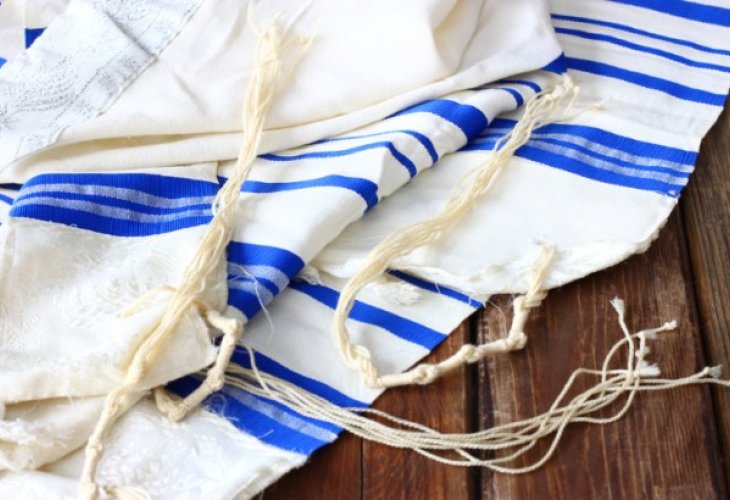Personal Stories
A Tzitzit in the Forest: Faith That Wouldn't Move
He gave up his comfort, his money and almost his life for tzitzit. In return, Hashem gave his brother a second chance at life.
 (Photo: shutterstock)
(Photo: shutterstock)This true and powerful story shows just how far one Jew went to honor a mitzvah (commandment), and how that act of self-sacrifice later brought about a miraculous healing.
Rabbi Moshe and his brother, Rabbi Yitzchak Ashkenazi, were among the top students of the Vilna Gaon, one of the greatest Torah scholars in Jewish history. Rabbi Moshe was also known for his sefer (book) Brit Olam, a deep Kabbalistic work.
At a certain point, Rabbi Moshe decided to take upon himself a personal commitment: to never walk more than four amot (about six feet) without wearing tzitzit, the ritual fringes that Jewish men wear as a constant reminder of the mitzvot.
This wasn’t just symbolic. He kept this vow with his full heart and soul. No matter the situation, no matter the cost, he made sure he always wore kosher tzitzit of the highest standard. It cost him effort, energy, and a lot of money but he never wavered. One day, that dedication would test him in a life-altering way.
At the time, Rabbi Moshe worked as a teacher for young children in a village near Vilna. After six months of teaching Torah, he set off toward the city to return home with his pockets filled with his hard-earned salary.
When the sun reached its peak and it was time for Mincha (the afternoon prayer), he asked the wagon driver to stop and prayed by the roadside. While deep in prayer, swaying with devotion, his tzitzit got caught in the branches of a tree.
He tried to free them, but one strand tore off, making his tzitzit invalid. Though the area was dangerous and halachically (according to Jewish law) he would have been allowed to continue without the tzitzit, he wouldn’t budge.
This was the mitzvah he had taken on with all his being. Not even the threat of danger would cause him to walk without kosher tzitzit.
He turned to the wagon driver, the only other soul in sight and pleaded: "Please, my tzitzit is torn. I can’t go any further without a kosher tallit katan (a small garment with tzitzit). Could you travel to the next town and bring me one? I’ll pay you well."
The driver laughed. "Are you out of your mind? Travel back two hours for a piece of cloth? Just get in the wagon and go home. You can wear all the tallitot you want there!"
But Rabbi Moshe wouldn’t move. After much back and forth, he handed over his entire bundle of money, all the money he had saved up for six months to feed his family. That was the price he was willing to pay for a mitzvah.
The driver, overjoyed by the generous reward, thought to himself: this Jew is a fool but his money is real. Yet, as the driver turned back toward the town, he reconsidered. Why bother? He could just go home with the money and leave Rabbi Moshe behind. And that’s exactly what he did.
Rabbi Moshe was left completely alone by the roadside. But he did not move.
Night fell. Then another day passed. Then another. The food he had packed was gone, and his strength was fading. Yet he still refused to take even a single step without fulfilling the mitzvah he had committed to.
On the third day, a wagon filled with Jewish travelers heading to Vilna passed by. With what little strength he had left, Rabbi Moshe cried out. Alarmed, they stopped the wagon and rushed to help him. But all he asked was: “A kosher tallit.”
One traveler opened his bundle and offered him a spare pair of tzitzit. Only after he put it on did Rabbi Moshe agree to board the wagon and continue home.
When he arrived, he told his wife nothing of what had happened. “The money was stolen,” he said quietly. And in a way, it was true.
Years passed.
Then, one day, devastating news reached Rabbi Moshe: his beloved brother, Rabbi Yitzchak, was gravely ill and near death. Rabbi Moshe quickly arranged a wagon and rushed to his bedside.
By the time he arrived, the Chevra Kadisha (Jewish burial society) was already there. His brother lay motionless, with only faint breaths giving a sign of life.
Rabbi Moshe stood at his head and then made a strange request: for everyone to leave the room. Family, students, and the burial society all stepped out, wondering what he planned to say.
But he didn’t speak to his brother at all. Instead, he turned to a corner, fell to his knees, and began to pray.
"Master of the Universe," he cried, “You commanded us in Your Torah to wear tzitzit. I gave everything I had, my strength, my money, almost my life to keep this mitzvah. I stood in the forest without food or water, not moving a step until I fulfilled Your will.
“And now, there’s another mitzvah: ‘Do not ignore your own flesh and blood.’ So I dedicate the reward of that mitzvah to my brother. Please, may it stand in his merit. Please send him a complete recovery.”
Then he quietly left the room.
Moments later, the family rushed in and were stunned. Rabbi Yitzchak’s face had color. He was sweating. His eyes fluttered open.
“Water!” someone yelled. “Get a doctor!”
But Rabbi Moshe slipped away, unnoticed.
Within days, Rabbi Yitzchak had recovered fully. He went on to live another 15 years and never needed to see a doctor again.
All because of a mitzvah fulfilled with love, with self-sacrifice, and with unshakable faith.

